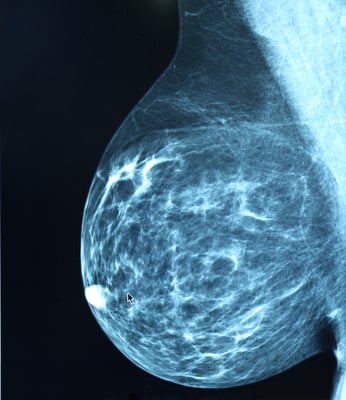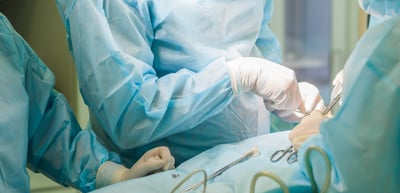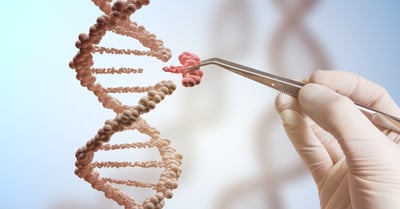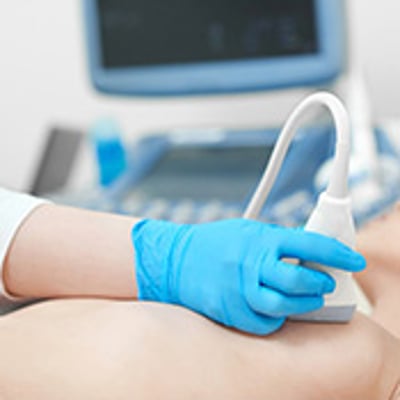FORCE's eXamining the Relevance of Articles for You (XRAY) program looks behind the headlines of cancer news to help you understand what the research means for you.
XRAY is a reliable source of hereditary cancer research-related news and information.
Learn more about the XRAY program
Categories Cancer Risk
Relevance: Medium-High


Quality of Writing: Medium


Article : Insurance companies are more than curious about your genetic test results
Relevance: Medium-High


Quality of Writing: Medium


Most relevant for: People considering testing for an inherited gene mutation
An article on CBSNews.com addressed why insurance companies, particularly long-term insurance companies, might want to know which of their policy holders and potential policy holders have a gene that raises their risk for cancer. The article discusses genetic discrimination by insurance companies that provide long term care policies. Federal laws protect people with gene mutations from discrimination in health insurance. No such federal laws exist for life insurance, disability insurance or long term care. (3/13/18)
Read More
Relevance: High


Strength of Science: High


Research Timeline: Post Approval


Study : Should biannual MRIs replace annual mammograms in high-risk women?
Relevance: High


Strength of Science: High


Research Timeline: Post Approval


Most relevant for: Women at increased risk for breast cancer due to an inherited mutation
The risk of breast cancer is exceptionally high in women who have a personal or family history of breast cancer or who carry a mutation in BRCA or certain other genes. More frequent screening is one strategy for early detection of breast cancer for these women. Study results presented at the 2017 San Antonio Breast Cancer Symposium suggest that MRI screening every 6 months may be more effective than the currently recommended annual breast MRI and annual mammogram in detecting early stage breast cancers-which are more treatable-in high-risk women. (2/1/18)
Read More
Relevance: Medium-High


Strength of Science: Medium-High


Research Timeline: Post Approval


Study : What is the risk of breast cancer recurrence after nipple-sparing mastectomy?
Relevance: Medium-High


Strength of Science: Medium-High


Research Timeline: Post Approval


Most relevant for: Breast cancer patients who are considering or have had a nipple sparing mastectomy
Nipple-sparing mastectomy (NSM) offers better cosmetic results for women who have immediate breast reconstruction (at the same time as their mastectomy). Over the past decade, NSM has gained popularity among surgeons and patients. Studies show that women who keep their own nipples have higher rates of satisfaction and psychological well-being after mastectomy and reconstruction compared to women who lose their nipples. However, little data exists on the long-term risk of recurrence following NSM. New research adds to a growing body of evidence suggesting that risk of recurrence is low after NSM in carefully selected patients with breast cancer. (1/25/18)
Read More
Relevance: Medium-Low


Strength of Science: Medium-Low


Research Timeline: Human Research


Study : No new high-risk breast cancer genes here
Relevance: Medium-Low


Strength of Science: Medium-Low


Research Timeline: Human Research


Most relevant for: People with a family history of breast cancer but no known inherited mutation
While some of the genes that cause hereditary breast cancer are known (for example, inherited mutations in genes like BRCA, ATM and PALB2), others remain unidentified. Two studies found 72 DNA changes (also known as “variants” or “SNPs”) that affect breast cancer risk. These variants are different from mutations in genes that dramatically increase cancer risk. Most of these new variants are located outside of the portion of DNA that is used to make proteins. Further research is needed on these new variants before they can be used by doctors to help people understand and manage their risk for cancer. (1/12/18)
Read More
Relevance: High


Strength of Science: Medium-High


Study : Birth control and breast cancer risk among younger women
Relevance: High


Strength of Science: Medium-High


Most relevant for: Young women on, or considering taking hormonal birth control
On December 7, 2017 the New England Journal of Medicine published results from a study by Lina Mørrch of the University of Copenhagen and colleagues showing that hormonal contraceptives (birth control) increase the risk of breast cancer. The study is unique because it is one of the first to specifically assess the breast cancer risk associated with newer, low-dosage methods of contraception. The large and significant effort analyzed medical data of nearly 1.8 million young women in Denmark on average for over 10.9 years. Results were covered widely in the U.S. by many major media outlets, including the New York Times, USA Today, Forbes and Time. (12/14/17)
Read More
Relevance: Medium-High


Quality of Writing: High


Article : Dense breasts and mammograms: Jill Goodacre’s story
Relevance: Medium-High


Quality of Writing: High


Most relevant for: Women with dense breast tissue on mammograms
Korin Miller’s piece for SELF magazine focuses on why women with dense breasts may need more than a screening mammogram. Miller highlights the recent story in People magazine of Jill Goodacre, a former Victoria’s Secret model and the wife of recording artist and talk show host Harry Connick Jr. Goodacre told of her breast cancer diagnosis 5 years ago after having additional screening of her dense breast tissue following a normal mammogram. (12/8/17)
Read More
Study : Alcohol and breast cancer risk in African American women
Most relevant for: African American women who would like to lower their breast cancer risk
The link between alcohol intake and breast cancer is well known, but most studies have involved only White women. Recently, a large study of more than 22,000 African American (AA) women found that similar to White women, increased alcohol consumption is associated with a greater risk of breast cancer. (10/27/17)
Read More
Article : Mixed reviews of at-home genetic testing
Most relevant for: People who are considering or have had direct-to-consumer testing
National guidelines recommend that patients meet with a genetics expert before undergoing genetic testing for cancer risk. Genetic counseling can help patients decide whether genetic testing is right for them and order the most appropriate test. Once test results are available, genetics experts also help patients understand their results. Over the last decade, the popularity of direct-to-consumer (DTC) genetic testing, such as 23andMe has grown. Some genetic tests are marketed to consumers on television, in print advertisements, and on the Internet. These “at-home” genetic tests give people direct access to their genetic information without first involving a healthcare provider in the process. A recent report outlines the benefits and limitations of DTC genetic testing. (10/20/17)
Read More
Relevance: Medium-High


Strength of Science: Medium


Study : Beauty and the breast: hair product use and breast cancer risk
Relevance: Medium-High


Strength of Science: Medium


Most relevant for: Women who use hair products who are concerned about their risk for breast cancer
Past studies using mostly animal models showed a link between use of hair products (dyes, straighteners and relaxers) and increased risk of certain cancers. In this study, researchers looked at data on hair product use among African-American (AA) and White women to see if certain types of hair products increased breast cancer risk, and how that risk might differ between race and breast cancer hormone status. (9/27/2017)
Read More
Article : Can lifestyle changes impact breast cancer risk?
Most relevant for: Any woman concerned about her risk for breast cancer
A recent New York Times article shared how “adopting protective living habits” could help keep breast cancer “at bay”. While many of these lifestyle changes and strategies like not smoking, avoiding weight gain, reducing alcohol consumption, eating a heart-healthy diet, and increasing physical activity have been shown to reduce breast cancer risk, there are other risk factors that one cannot control such as having a BRCA or other mutation that significantly increases breast cancer risk. Importantly, no one strategy has been proven to totally eliminate breast cancer risk. However many of these approaches have overall health benefits. (9/21/2017)
Read More